Documenting the oral traditions of Mentawai people from the Sarereiket and Sabirut regions of Siberut.
Indigenous people’s storytelling systems and traditions are disappearing, but to sustain our collective future we must heed their wisdom.
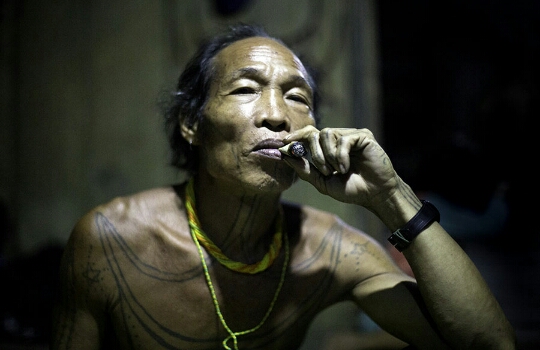
Sarereiket region, Siberut, Mentawai – It is late the chorus of coupling frogs and the stomp of still energetic children running across wooden floorboards floods the pauses between the words from Sikerei Aman Teu Agoi. His tone and nuances match the sounds of the surrounding forest –from the pandemonium of pigeons, to rumbles of the rain-fed river, and then a pause, like the posture of the proud kara-kara tree. We are gathered together to listen to a story, a story about how the Mentawai people came to occupy and care for Siberut Island, one of the most biodiverse islands in the world.
Storytelling has long been central to the human experience. Stories have helped us establish our identity, beliefs, morals, knowledge, and practices that have beenfundamental to sustaining our societies. But we are not limited tostories – our philosophies have manifested as songs, poems, chants, proverbs, taboos, myths, epics, scriptures, and fables. These are the ways we explain life and how we fit within.
Significant to many Indigenous cultures worldwide areoral traditions that have been passed on for generations. These traditions often contain ancient memories, timeless wisdom and profound knowledge that has fostered the physical and spiritual wellbeing of their people and the landscapes they occupy for millennia. But when development and modernization are at the door of many Indigenous territories, oral traditions are often threatened by cultural homogenization.
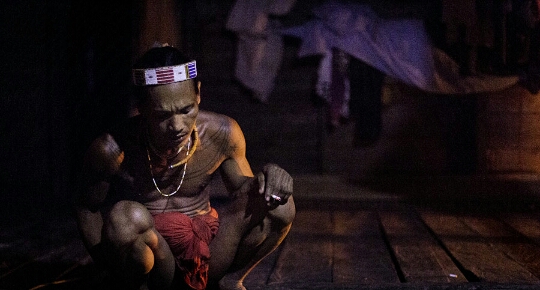
Mentawai culture is rich in storytelling traditions, from stories about shaman origins, songs of the spirits of Mentawai’s medicinal plants, ceremonial scriptures recited in Siberut’s old languages, and late night discussions mapping territories, resources and family histories, among many others. But the ways in which Mentawai people meet and interact have been changing.
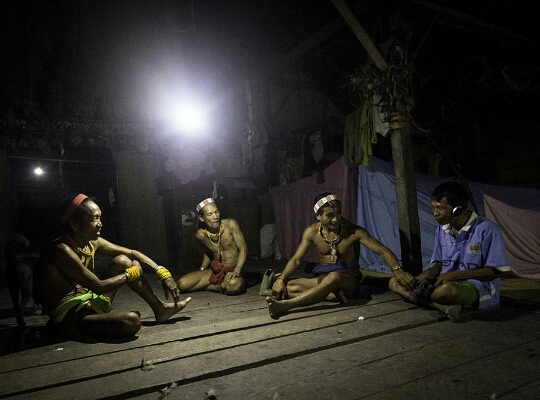
Alarmed at the gradual erosion of their Indigenous culture and knowledge, Yayasan Pendidikan Budaya Mentawai have been campaigning to preserve their traditional knowledge so that our children may have opportunity to access, practice and know the richness of their cultural heritage. To find out why our oral traditions are disappearing, the team turned directly to community members from both the Sarereiket and Sabirut regions of Siberut to ask their opinions, and unearth their needs and desires.
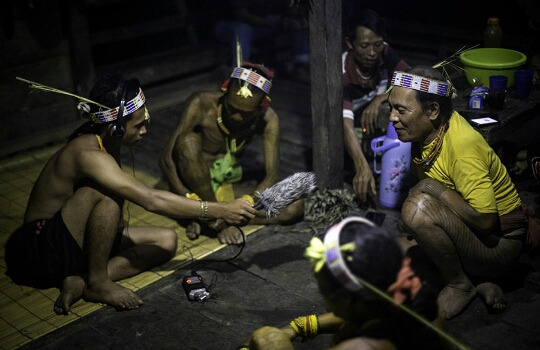
We found that a significant reason behind why Mentawai oral literatures are believed to being lost is because the connection between generations has been disrupted. Recent changes in Mentawai society structural patterns over the last few decades have meant children and elders rarely interact. YPBM believe this has had repercussions beyond the transmission of oral literature alone – fewer children speak and understand Mentawai dialects, fewer understand the ecological functioning of the forest, fewer have experienced the taboos and rituals that govern the Mentawai way of life.
“We are losing connection to our language and culture. Majority of Mentawai youth – almost all – have lost connection. This is because the past few generations we have had no access to learn about this knowledge. It is not available within our education system. This is terrifying because, without our cultural knowledge, we are destined for poverty and eventually we will disappear.” Martison Siritoitet, Mentawai youth.
Three-quarters of respondents from YPBM’s survey felt Mentawai’s oral literature is disappearing because children now spend a significant portion of their time in school, where traditional literatures are not taught as part of their curriculum.
Most respondents felt Mentawai’s oral literatures were disappearing because people were more interested in learning about foreign ways of life and modern technologies. There were mixed responses as to whether youth were still interested in learning Mentawai’s oral traditions.
7 in 10 respondents knew variations of Mentawai’s traditional stories, songs, poems or myths. However, when asked to share their stories, most responded they didn’t know it well enough to share or pass on.
Despite the evidence suggesting the erosion of an important facet of Mentawai culture, 99 per cent of those surveyed agreed that Mentawai oral literatures are vital for their future.
“Mentawai’s oral literature… our stories, songs, language, taboos, rituals and so forth, carries our culture from generation to generation, keeping us safe from harm and close to our identity. Without our oral literature, essentially, we would cease to exist.” Mentawai elder, Siberut Island – 2019.
Remembering that their culture is dynamic, coupled with growing concerns at the loss of our stories, the YPBM team proceeded to ask in what ways their community would most like to learn about Mentawai oral literatures.
Over 90 per cent hoped for a book that can be shared with their children; 80 per cent hoped to meet regularly at cultural studios to hear literatures directly from elders and Sikerei; and 8 in 10 saw immense value in attending a cultural education program, like the one our Mentawai partner Foundation has established in Siberut.
“Our target is to use this research to develop a Mentawai oral literature book, which we will distribute amongst our cultural education program students and teachers. We shall also share this with Mentawai’s Indigenous committee and government education department, as we envision that our research outputs reach a national standard and integrated within the regional curriculum for all Mentawai children. This is critical because there are no accruate, cultural reference books available for our schools. The government have made a public request for support in thie area. Books, videos, comics… we have the research materials to develop this” Fransiskus Yan, Chairman YPBM.
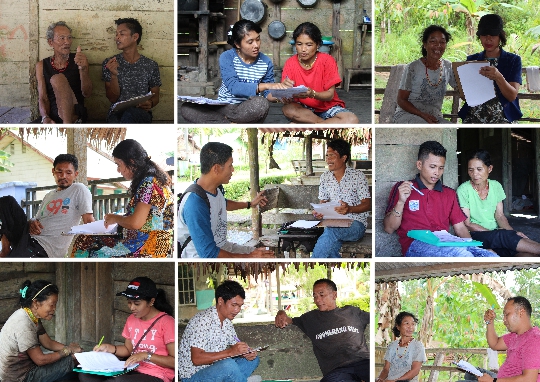
The Sabirut and Sarereiket regions of Siberut Island represent a very small proportion of Earth’s population. So why then do Mentawai oral literatures matter? Why should we consider spending time learning and carrying with us stories passed from generations a very long time ago? Stated simply, the greatest threat to humanity’s wellbeing is homogenization.
Keeping oral traditions alive is paramount to strengthening Indigenous culture, language, values, pride, and wellbeing both for people, and the territories they occupy. In addition, Indigenous oral traditions contain unique, verdant philosophies to illuminate the challenges often faced in our lives. We provide a prevailing means by which we can understand our connection to our lands, resources, sacred places, and ancestors, and how to interact with each. The collective wisdom of all Earth’s peoples gives hope that we may find solutions to how we may respectfully sustain our global society.
Learn more about our program via our website and be sure follow @sukumentawai to hear how our research journey unfolds. YPBM would like to acknowledge the Indigenous Education Foundation and Firebird Foundation for their financial support toward this project.











